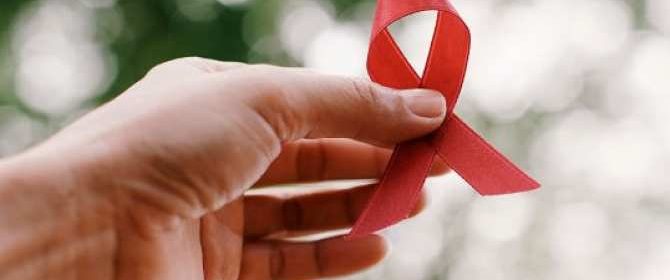How to avoid getting HIV: ways of protection

HIV is much more complicated than the common cold. HIV is spread only through certain body fluids: blood, semen, preseminal liquid (predanost), vaginal and rectal fluid, and breast milk. Avoiding contact with them, you can prevent the infection.
Safe sex
The most common way of HIV transmission is sex with an infected person. Relying solely on external signs, it is difficult to say a person has HIV or not, so it is important that the sex was always protected, especially with a new partner.
Kissing, erotic massage and mutual Masturbation is safe sex. The chances of Contracting HIV appear when the penis, vagina or anus of one person, contact with the genitals of another (this applies to oral sex).
To reduce the risk of infection using during sex with a latex or polyurethane condom (condoms made of natural leather to prevent pregnancy but do not protect from infections). Put on a condom immediately after erection. Instead of oils use lubrication, water-based.
The female condom also protects against HIV.
Oral sex without a condom is unsafe, but it is much less risky than unprotected vaginal or anal sex.
Failure or safe drug use
The most secure option is the rejection of the use of any drugs, particularly injection. But if you are not ready or able to stop, you can still reduce your chances of HIV.
- If you already use drugs, do not enter them intravenously.
- If you inject drugs, do not share your equipment with other people. This applies to everything: needles, syringes, bottles, cotton pads and water used for washing. Find out if nearby needle exchange programme, where you can exchange used needles for new ones.
- Don’t have sex in a condition of alcoholic or narcotic intoxication. At such moments, you will hardly worry about the safety of sex.
During pregnancy
Test for HIV, if you haven’t already. Mothers with HIV can transmit the virus to babies during pregnancy, birth or breastfeeding.
If you already have HIV, take medication to prevent transmission to your child. However, even in the case of medications, to better feed the baby infant formula or milk of uninfected women.
When someone is bleeding
Be careful and avoid getting someone else’s blood into any cuts or open wounds on your skin, as well as in the eyes or mouth. If you have to have contact with the blood of a person infected with HIV, wear gloves. Although such cases are rare, they are still possible.
If the risk of infection is high
People who have high chances of Contracting HIV infection or those who are in contact with HIV-positive people can take daily pill to help prevent infection. They’re called PrEP, or predispositional (preexposure vaccination program) HIV prevention. However, such therapy is not a substitute for compliance with other preventive measures
If there’s a chance that you are infected
You should immediately contact the urgent care clinic. You may be able to take medication to stop the infection. The first dose must be taken not later than 72 hours after infection. The treatment lasts several weeks and can have serious side effects.
How to protect your HIV negative partner if you are HIV positive?
Take daily HIV medications. The so-called antiretroviral therapy or ART helps people with HIV live a long and healthy life. ART can’t cure HIV infection, but may reduce the amount of virus in the body (also called viral load). The main purpose of ART is to reduce viral load of the person to undetectable levels. Undetectable viral load means that the level of HIV in the blood is so low that it is not determined by analysis. People with HIV who maintain viral load is so low, in fact, are not at risk to infect their HIV-negative partner during sex.
Here are some other steps you can take to protect your partner from HIV:
- Use condoms every time you have sex
- Talk to your partner about taking PrEP
- If you use drugs, do not share with your partner your needles, syringes or other instruments
In some cases, medications used for HIV prevention?
HIV drugs are also used for post-exposure prevention of infection (PEP), and prevention of transmission of HIV from mother to child.
Post-exposure prophylaxis for HIV (PEP)
PEP is using HIV medicines to reduce the risk of HIV infection shortly after exposure. The control panel can be used, for example, after the person had sex without a condom with a person with HIV or after a health care worker accidentally infected with HIV in the workplace. For maximum efficiency, the control panel must be made within 3 days after possible contact with the virus. PEP involves taking HIV medicines every day for 28 days.
The prevention of HIV transmission from mother to child
Women with HIV take special drugs during pregnancy and childbirth to reduce the risk of transmitting HIV to their babies and protect their health. Their newborn babies also receive HIV medicine for 4-6 weeks after birth. This medicine reduces the risk of infection from a virus that may have entered the body of a child during childbirth.
